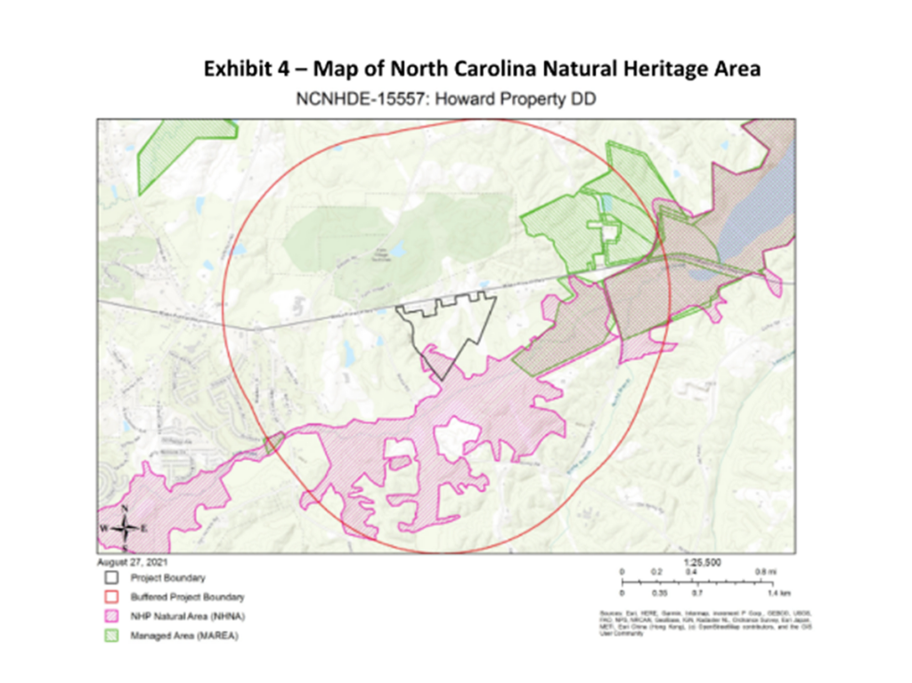Riverkeeper: Durham Council Must Vote ‘No’ on More Lick Creek Development
- Sound Rivers

- May 1, 2025
- 3 min read
Updated: May 2, 2025

Neuse Riverkeeper is asking Durham residents to speak out, and against, yet another development proposal in the Lick Creek watershed.
Durham City Council members are scheduled to vote on the Howard property rezoning on Monday, May 5, at their council meeting. The proposal includes construction of 499 residential housing units on 86.4 acres of land adjacent to Lick Creek and the protected Falls Lake drinking-water watershed.
“We need people to stand up for the Lick Creek watershed and downstream communities who rely on clean water in Falls Lake,” Samantha said. “It’s going to take all of our voices to get through to a majority of city council members, so we need everyone who can to send a message, or better yet, attend Monday’s meeting in person to tell Durham council to deny more large-scale sprawl in the imperiled Lick Creek watershed.”
The project area includes five jurisdictional streams and parts of the North Carolina Natural Heritage designated natural area called the Middle Lick Creek Bottomlands, which contains unique habitat, plant and fish species, she said.
Over the past three years, Samantha has documented the impacts of the rampant development of the Lick Creek watershed.

“The Lick Creek watershed has already suffered immensely from development pressure, and our ongoing water-quality sampling demonstrates that sediment remains a concerning pollution crisis in Lick Creek,” Samantha said. “Durham City Council should require developments in this area to commit to strong environmental conditions to ensure that no more destruction is caused in this environmentally sensitive area.”
Samantha said she is asking Durham City Council to vote against the Howard property proposal unless strong environmental conditions are adopted to the unique forest habitat and water resources on the site and downstream.
The council will vote on the rezoning proposal at its meeting scheduled for 7 p.m. on Monday, May 5. More information about the meeting can be found here.
More background information on Lick Creek from Samantha:
The Howard property rezoning development includes five state-regulated, jurisdictional streams that flow into the Lick Creek Natural Heritage area. According to the North Carolina Natural Heritage Area assessment, this remaining forested area is unique for containing mature hardwood forest and significantly rare and vulnerable plant and fish species such as the Carolina darter fish and the Douglass bittercress flower, which have also been documented within a mile of the project area.
This project is located in the closest developable land to the Falls Lake Critical Watershed boundary and abuts the city’s Urban Growth Boundary — defined in Durham’s Comprehensive Plan as an area “beyond which annexations and utility extensions should not occur, limiting significant development.”
The currently forested land on the Howard property site is surrounded by recently approved developments and a landscape of clear-cutting and exposed soils.
High-density land clearing in the Lick Creek watershed has led to such harmful levels of sediment pollution that sediment plumes can be seen flowing into Falls Lake from the sky. Sound Rivers has documented this pollution for years, but few additional measures have been required of developers to retain sediment on their construction sites.
Durham City Council should take steps to protect our water resources by asking developers to commit to clearing less land of trees, and adopting better sediment and erosion control and stormwater practices. The City of Durham’s Environmental Affairs Board — a volunteer board of environmental experts appointed by city council — stated to Durham Council that “The Howard Property development poses substantial environmental risks with minimal mitigation measures in place,” and called for the developer to incorporate “more stringent commitments to sustainable building practices, retaining tree coverage, reducing impervious surfaces, stormwater management, and biodiversity protection.”
This article was published first by Sound Rivers.



Comments